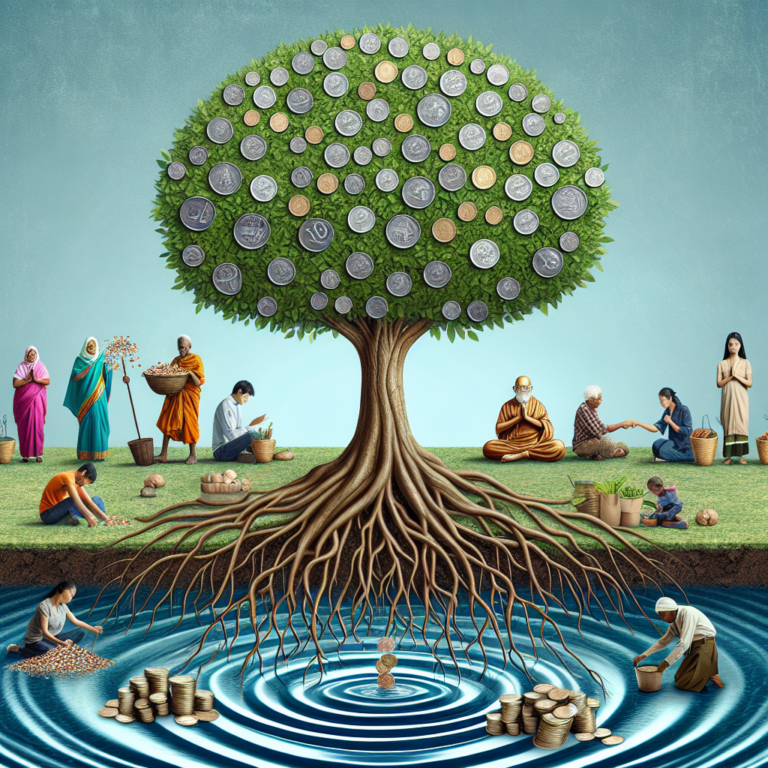In the modern age, where science and spirituality often stand at odds with one another, the concept of karma has found its place as a bridge between these two realms. Part of a larger metaphysical framework, the idea of past life karma not only adds depth to our understanding of personal growth but also highlights the interconnectedness of our experiences across time. This article delves into what past life karma entails, how it influences our present circumstances, and the implications it has for our future.
Understanding Karma
Karma, derived from the Sanskrit word "Karman," signifies action, work, or deed. In spiritual contexts, it embodies the law of cause and effect, where every action generates consequences that shape an individual’s current and future lives. The actions we take, both positive and negative, create a ripple effect, influencing our experiences not just in this lifetime but across multiple existences.
Karma is often discussed in terms of moral consequences—good deeds leading to favorable outcomes and vice versa for misdeeds. However, the scope of karma transcends simple morality. It encompasses intentions, emotional states, and even unresolved issues from past lives.
The Concept of Past Life Karma
At the heart of the idea of past life karma is the belief that our current life circumstances are influenced by the choices we made in previous lives. Many spiritual traditions, including Hinduism and Buddhism, propose that the soul undergoes cycles of rebirth, or samsara, until it achieves enlightenment. Each reincarnation offers a new opportunity for growth and learning, but unresolved karma from prior existences can impact our current life journey.
For example, if someone harbors resentment from a previous lifetime, it might manifest as challenges in relationships or a tendency toward anger in their present life. Conversely, positive actions, such as acts of kindness or generosity, can contribute to favorable outcomes, providing an individual with gifts or opportunities in the current incarnation.
The Ripple Effect of Past Life Karma
The "ripple effect" is a metaphor for understanding how actions and experiences influence not just the individual but also their environment. When considering past life karma, the ripple effect emphasizes interconnectedness. Our past choices and their repercussions resonate in our current lives—not only affecting us personally but also impacting our relationships, communities, and even the broader world.
1. Patterns of Behavior
Individuals often find themselves repeating certain patterns—relationships that end in conflict, career paths that seem unfulfilling, or emotional challenges that appear cyclical. These patterns can lead back to unresolved karma from past lives. For instance, a pattern of abandonment might resonate from a past life where the individual suffered loss. Recognizing these behaviors as potential reflections of past karma can serve as a catalyst for change and personal development.
2. Interpersonal Relationships
Karma doesn’t just affect the individual; it shapes interactions with others. Sometimes we encounter individuals in our lives who evoke strong emotions—positive or negative. This could indicate a karmic connection, suggesting that shared experiences or unresolved karma from previous lives is now coming to the foreground for healing. Understanding these relationships can help individuals navigate complex emotions, fostering forgiveness or compassion that can break negative cycles.
3. Life Lessons
Each lifetime presents unique lessons for growth, and unresolved karma acts as both a burden and a teacher. Life challenges often reflect lessons that need to be learned. Someone dealing with issues of trust may be called to confront that in relationships or situations, allowing for healing and resolution. The goal is to transform past negative karma into positive actions and insights, reinforcing personal growth.
Healing Past Life Karma
Addressing past life karma involves introspection, healing, and sometimes, guidance from practitioners in spiritual or therapeutic modalities. Here are strategies to navigate and heal from past life karma:
1. Self-Reflection and Meditation
Engaging in regular self-reflection can provide insights into recurring patterns or emotional triggers. Meditation is a powerful tool that can help individuals connect with their inner selves, facilitating a deeper understanding of unresolved karma.
2. Past Life Regression
Many individuals seek past life regression therapy with a qualified facilitator. This therapeutic approach allows individuals to explore memories from previous lives, providing context for current life struggles and shedding light on emotional burdens.
3. Energy Healing and Chakra Work
Energy healing modalities, such as Reiki or chakra balancing, can help individuals release stored energy connected to past traumas. These practices encourage emotional release and facilitate healing, allowing positive energy to flow freely.
4. Forgiveness Practice
One of the most powerful tools for addressing past life karma is forgiveness. This involves not only forgiving others but also extending compassion toward oneself. A commitment to releasing resentment can be transformative, allowing for a healthier perspective on life and relationships.
5. Mindful Living
Living mindfully involves making conscious choices in daily life. Understanding the potential ramifications of one’s actions can help individuals align their behaviors with positive outcomes, creating new patterns rather than repeating old ones.
Conclusion
The understanding of past life karma and its ripple effect offers profound insights into our current journeys. By recognizing the interconnectedness of actions and their consequences, individuals can take control of their experiences, encouraging healing, growth, and transformation. As we grapple with personal challenges and pursue our life paths, acknowledging our past can illuminate the road ahead—allowing us to create a more fulfilling and enlightened existence.
FAQs
1. What is the fundamental principle of karma?
Karma is based on the understanding that every action has consequences. Positive actions lead to beneficial outcomes, while negative actions result in challenges.
2. How can I know if I have past life karma affecting me?
Signs may include recurring life patterns, emotional triggers tied to certain people, or persistent challenges you can’t seem to overcome. Spiritual practices like meditation or regression therapy can provide further clarity.
3. Can past life karma be changed or resolved?
Yes, karmic lessons can be resolved through self-awareness, healing practices, and making conscious, positive choices in daily life.
4. Do all cultures believe in reincarnation and past life karma?
Not all cultures or religions subscribe to the belief in reincarnation and karma, but many spiritual traditions, particularly those in Hinduism and Buddhism, include these concepts.
5. Is there a way to consciously create positive karma?
Absolutely! By acting with intention, compassion, and mindfulness in your daily life, you can create positive karma that influences your future experiences.
It seems like your message got cut off. Could you please provide more details or clarify what you’d like to know or discuss? I’m here to help!, #Ripple #Effect #Understanding #Life #Karma #Impact #Current #Journey, #Ripple #Effect #Understanding #Life #Karma #Impact #Current #Journey, 1736120693, the-ripple-effect-understanding-past-life-karma-and-its-impact-on-your-current-journey





